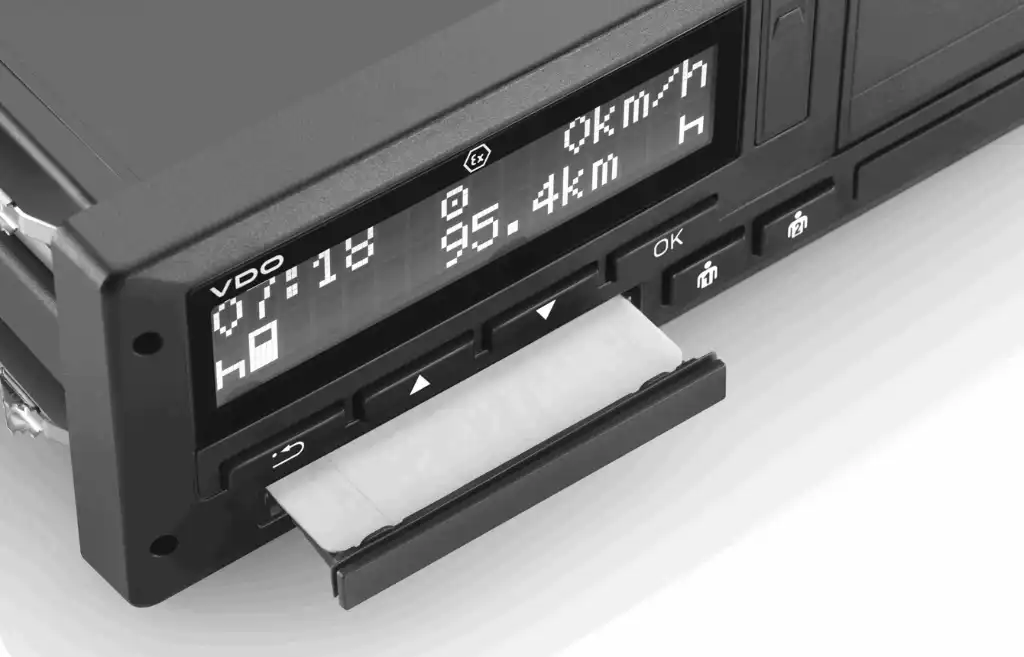
If you're driving a large van for personal use, like moving house, you may be wondering if you need a tachograph for driving vans.
So, what is a tachograph? It's a device that records how long you've been driving, as well as your speed and distance traveled. Tachographs are mandatory for vehicles over 3.5 tonnes and for vehicles towing a trailer with a combined weight of over 3.5 tonnes. The device is used to ensure that drivers follow the drivers' hours rules and don't exceed the maximum time behind the wheel.
Tachographs for vans can be either analogue or digital, and they require either paper disks or a driver card to store all the information. They are predominantly found in trucks, but they apply to all vehicles over 3.5 tonnes. However, the rules are generally geared towards those using these types of vehicles for hire or reward. If you are operating a large van, over 3.5 tonnes, for a commercial gain, then you wil almost certainly fall into the category that requires you to operate with a tachograph and Driver Card.
As with most things in life, there are of couse exemptions to the EU rules governing tachographs. Vehicles that cannot travel more than 40kph, such as agricultural equipment, are exempt. Emergency aid vehicles carrying out non-commercial transport of humanitarian aid are also exempt. Breakdown vehicles, vehicles undergoing road tests for repair or maintenance, and vehicles made more than 25 years ago also do not require a tachograph. Circus vehicles and milk floats are other examples of vehicles that are exempt from the rules.
If you're driving a van for personal use, such as moving house, you don't need to worry about tachographs. However, as soon as there is a commercial element to the work you're doing in a vehicle over 3.5 tonnes, you must comply with the rules.
Driving a horsebox for personal use also does not require a tachograph for vans. Additionally, vehicle and trailer combinations of more than 3.5 tonnes and up to 7.5 tonnes do not require a tachograph to be fitted when used for non-commercial purposes in vans.
If you're driving a 7.5-tonne truck, you may be wondering what the requirements are for tachograph use and your driving licence.
Many car drivers, those with a car licence obtained before 1997 have something called 7.5 tonne grandfather rights. This means you can drive a 7.5 tonne lorry on a car licence.
Of course there's a difference between trucks and vans, but very often if you're considering whether you need to tachograph for vans, you may also need to know about the regulations for driving a 7.5-tonne truck.
The rules regarding driving a 7.5-tonne truck are different from those for driving a van.
To drive a 7.5-tonne truck, you must have a Category C1 driving licence. You can obtain this licence by passing a medical examination and a theory and practical test. You must be at least 18 years old to apply for a Category C1 licence.
If you passed your B licence needed for driving a car or van under 3.5-tonnes before January 1997, you may already have a Category C1 entitlement on your licence. However, if you passed your test after this date, you'll need to obtain a Category C1 licence separately.
In addition to holding a Category C1 licence, you'll also need to comply with drivers' hours rules and tachograph rules. As mentioned earlier, tachographs are mandatory for vehicles over 3.5 tonnes.
The drivers' hours rules limit the amount of time you can spend driving and the amount of time you must take for breaks. For example, you must not drive for more than 4.5 hours without taking a break of at least 45 minutes. You must also take at least 11 hours of rest in a 24-hour period.
You'll also need to comply with regulations regarding the transportation of dangerous goods, if applicable. If you're transporting dangerous goods, you'll need to hold a valid ADR training certificate.
As a general rule. Yes - if you are making money out of driving.
And even if you obtained your driver's license before 1997 and are interested in professionally driving a 7.5-tonne vehicle, you will have to complete 35 hours of Driver CPC training every five years, unless you are eligible for an exemption.
Several exemptions to the Driver CPC requirement include:
If you are driving for personal use, you will not need to complete the Driver CPC. However, if you are driving professionally, the Driver CPC is mandatory. A comprehensive list of Driver CPC exemptions is available on the gov.uk website.